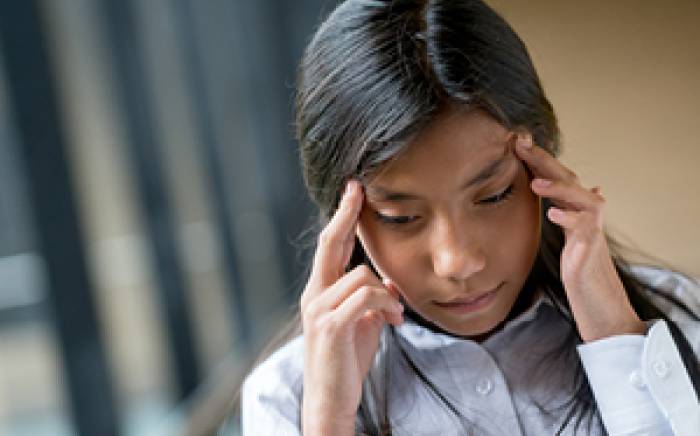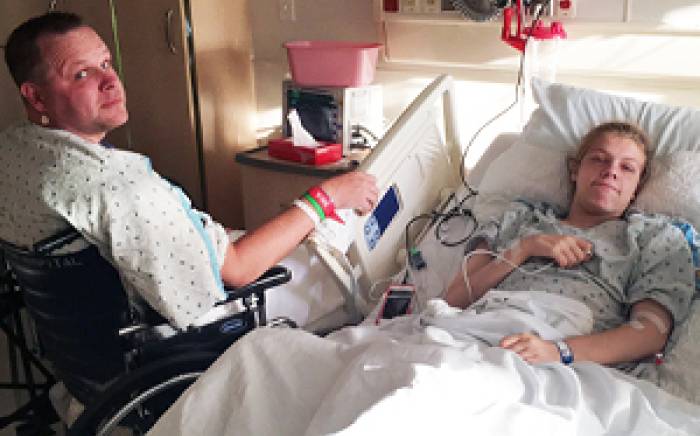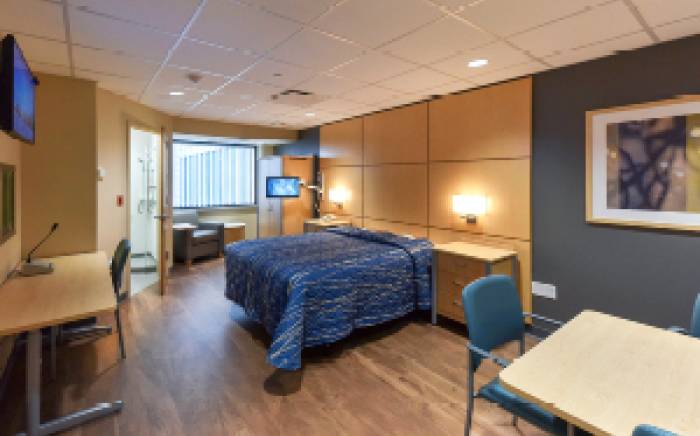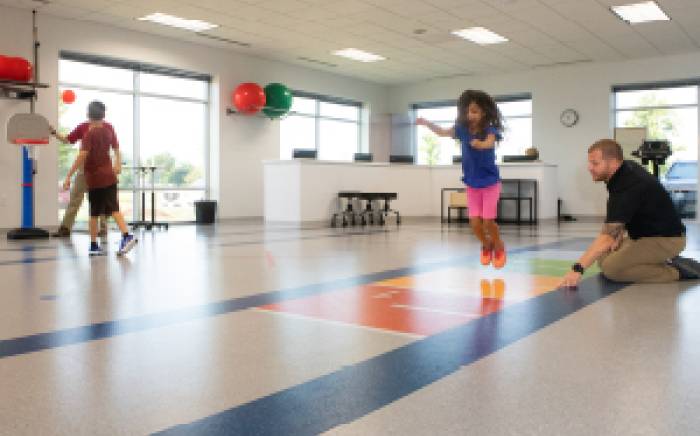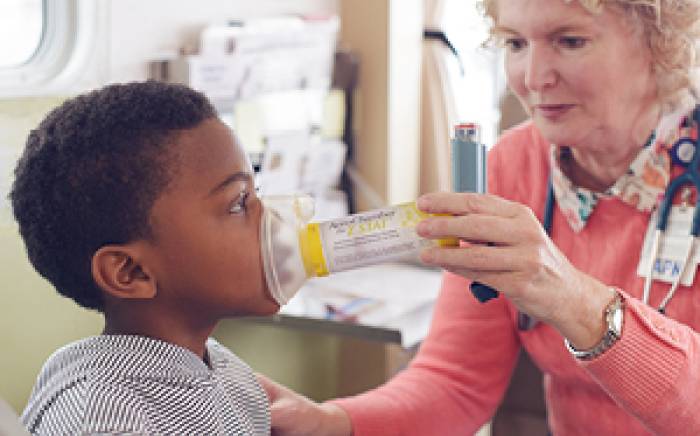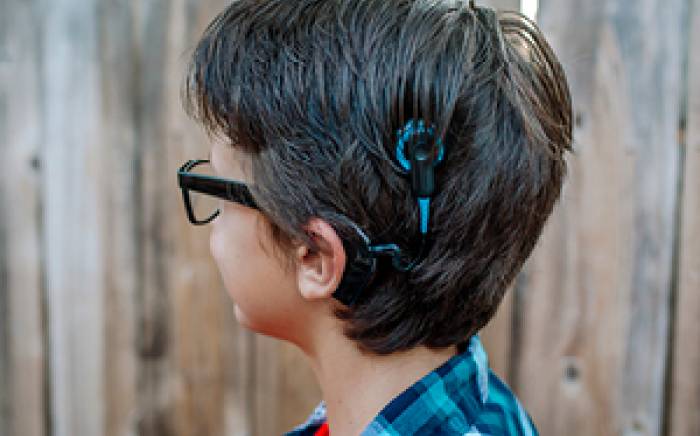 The Sleep Center at St. Louis Children’s Hospital (SLCH) is expanding to meet the increased need for sleep studies in patients ranging from newborns to older adolescents. Since completing phase I of the building expansion last October, the lab has been conducting studies in six sleep rooms seven days a week. When phase II construction is completed this spring, a total of 10 rooms will be available. Four portable sleep study units for use at patients’ bedsides will result in a potential capacity of 14 studies each night.
The Sleep Center at St. Louis Children’s Hospital (SLCH) is expanding to meet the increased need for sleep studies in patients ranging from newborns to older adolescents. Since completing phase I of the building expansion last October, the lab has been conducting studies in six sleep rooms seven days a week. When phase II construction is completed this spring, a total of 10 rooms will be available. Four portable sleep study units for use at patients’ bedsides will result in a potential capacity of 14 studies each night.
In recent years the Sleep Center has averaged between 1,200 and 1,500 studies annually. Its added capacity is projected to bring that total closer to 2,500, with the goal of reducing wait times to just two weeks.
“There is growing awareness by pediatric providers that some chronic health conditions in children such as cerebral palsy, kidney disease and hypertension are associated with sleep problems,” says James Kemp, MD, Washington University pediatric pulmonologist and medical director of the Sleep Center at SLCH. “In addition, the childhood obesity epidemic has resulted in children and teenagers developing obstructive sleep apnea, in some cases as serious as that of adults.”
The Center’s sleep rooms also feature advanced sleep study equipment that allows both a polysomnogram and full
equipment that allows both a polysomnogram and full
electroencephalogram (EEG) be conducted at the same time.
“A typical sleep study includes four to six EEG leads. But for sleep studies for children with neurological disorders such as epilepsy, our pediatric neurologists want to have a full EEG conducted with 18 to 20 leads. We now have that capability,” says Michael McLeland, PhD, RPSGT, RST, manager/ technical director of the Sleep Center.
 AN ACCREDITED SLEEP CENTER
AN ACCREDITED SLEEP CENTER
The Sleep Center at St. Louis Children’s Hospital is accredited by the American Academy of Sleep Medicine. Since sleep problems in children may be rooted in other illnesses or conditions, or can be more behavioral than physical, the center takes an interdisciplinary approach, with a team that includes pediatric pulmonologists, neurologists, cardiologists, plastic surgeons, otolaryngologists, psychologists, geneticists, respiratory therapists and registered sleep technologists.
Dr. Kemp notes that the approach to treating children and adolescents with sleep problems is often different than that used for adults, which means a good choice for these patients is a pediatric-focused sleep center.
“For instance, adults with obstructive sleep apnea usually go on continuous positive airway pressure—CPAP—right away. The first step for children with the disorder is to have them evaluated for an adenotonsillectomy. In 90 percent of cases, the surgery corrects the problem,” he explains. “But in serious cases, just as in adults, some children need to be placed on CPAP.”
Among other conditions treated at the Sleep Center are:
- Central alveolar hypoventilation
- Central apnea
- Chronic respiratory failure
- Narcolepsy
- Nightmares and night terrors
- Restless leg syndrome in children
- Rhythmic movement disorders
For additional information about the Sleep Center at St. Louis Children’s Hospital, contact Children’s Direct at 800.678.HELP (4357).

